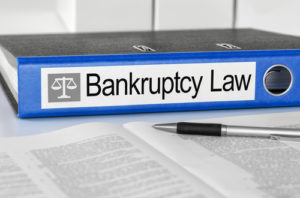What Should You Not Do Before Filing Bankruptcy?

Filing for bankruptcy is a complicated process, and there are things that can go wrong. This means thinking about what not to do before filing for bankruptcy, as well as what to do once you’ve filed.
The North Carolina bankruptcy lawyers at the Sasser Law Firm have put together this list of common bankruptcy mistakes to avoid before you file.
Things You Should Avoid Before Filing for Bankruptcy
Here is a short list of what not to do before bankruptcy:
- Don’t try to hide your assets, income, or debts – This is a mistake some people make. They might think that by giving these assets to a friend or family member, they can make it easier to qualify for bankruptcy or keep more of their assets later on. But lying about your assets or income in a bankruptcy application is a crime, so you may end up paying an even higher price if you’re caught. An experienced attorney can help guide with regards to the appropriate way to approach non-exempt assets.
- Don’t incur additional unsecured debt you do not intend to repay – Some people who are preparing to file for bankruptcy figure that if their debts are about to be wiped out, they might as well max out their credit cards. This is not advisable. Consequences can include, but are not limited to, having a creditor object to the dischargeability of the debt.
- Don’t touch your retirement funds – Draining your retirement accounts is another thing generally not to do before filing bankruptcy because your retirement accounts may be exempt and not subject to creditor claims.
- Retaining funds in a bank and/or credit union that you owe an unsecured debt to. To avoid set-off, it is generally a good idea to have no balance or a low balance in a checking or savings account where the banking institution is also a creditor. After the filing, funds can be deposited back into the checking or savings account.
What Happens If You Make a Mistake?
Minor mistakes, such as an unintentional error in valuing household goods on a bankruptcy form, can usually be addressed without much consequence other than inconvenience. However, some mistakes can have serious consequences. Depending on what that mistake is, your bankruptcy discharge could be denied, leaving you with outstanding debts with no way to have them discharged. Or, a case can be dismissed.
If you’re found to have lied in a court document, you could be charged with fraud or other criminal offenses, which carry serious penalties.
Need Help Filing for Bankruptcy? Contact Our Experienced Bankruptcy Attorneys Today
Filing for bankruptcy is a process with some pitfalls and complexity. An experienced bankruptcy attorney can help you to minimize the potential for problems and/or address problems that do arise.
The Sasser Law Firm has more than 20 years of experience helping North Carolina residents navigate the bankruptcy process. We have filed over 9,000 cases. Call our office today or visit our contact page to set up a free consultation.
- About the Author
- Latest Posts
For more than 20 years, the Sasser Law Firm has been helping individuals and business owners sort through financial hardships to see the light at the end of the tunnel. Our North Carolina bankruptcy attorneys are all board-certified specialists, which means we have passed a complex exam, undergone a thorough peer review, and continue to earn legal education credits in this ever-evolving area of law.














